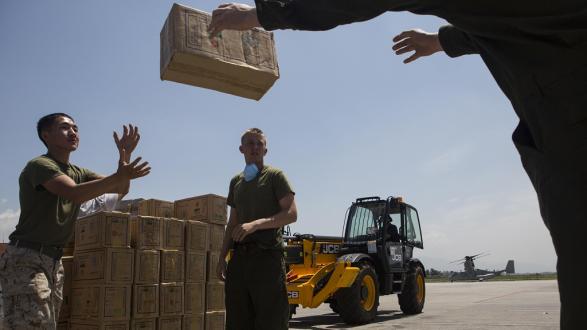Zoom / Password: 923857
Read takeaways from this discussion here.
A webcast on restrictions placed on humanitarian aid delivery in Syria because of the COVID-19 pandemic.
On July 11, the UN Security Council approved a resolution limiting the travel of UN aid convoys into Syria to one border crossing, instead of the previously established two. This blow to humanitarian aid comes as Syrian camps brace themselves for COVID-19 outbreaks that could quickly devastate the displaced people residing there.
As armed conflict and a pandemic threaten an already vulnerable nation, how can international actors and organizations seek to counter Russia’s presence in Syria and support the Syrian people? How has the climate on the ground shifted as interactions between U.S. and Russian troops have become increasingly tense?
Watch the full conversation below:
Featuring:
Mona Yacoubian, Senior Advisor to the Vice President of Middle East & Africa, United States Institute of Peace
Mona Yacoubian’s work centers on conflict analysis and prevention in the Middle East, with a specific focus on Syria, Iraq, and Lebanon. In 2019, she served as executive director of the Congressionally-appointed Syria Study Group, which USIP was mandated to facilitate. Read more.
Zaki Mehchy, Senior Consulting Fellow, Middle East and North Africa Programme, Chatham House
Zaki is also a co-founder of the Syrian Center for Policy Research (SCPR). His work focuses on development policies, and he has participated in several research and studies on socio-economic impact of the crisis in Syria, poverty and multidimensional deprivation, local governance, and community empowerment. Read more.
Moderator:
Kemal Kirişci, Nonresident Senior Fellow, Brookings Institution
Dr. Kirişci is the co-author of "The Consequences of Chaos: Syria's Humanitarian Crisis and the Failure to Protect" (Brookings Institution Press, April 2016), which considers the long-term economic, political, and social implications of Syria's displaced and offers policy recommendations to address the humanitarian crisis. Read more.




